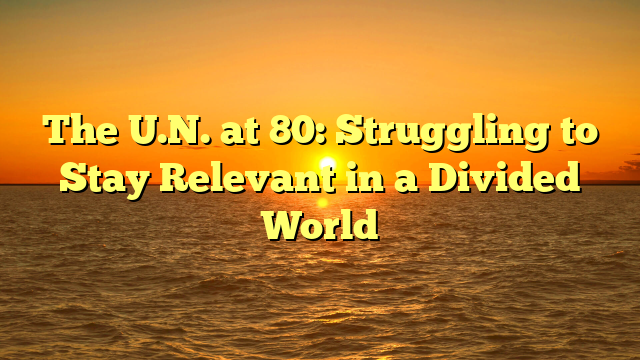As the United Nations marks its 80th anniversary in 2025, questions about its relevance have never been louder. Once the symbol of postwar unity, the organization now faces criticism for inefficiency, political paralysis, and an inability to respond slot naga169 login effectively to modern crises.
The Security Council remains gridlocked, with vetoes by permanent members—particularly Russia and China—stalling resolutions on conflicts in Ukraine, Gaza, and Myanmar. “The Council has become a reflection of global division, not cooperation,” said former U.N. diplomat Richard Gowan.
Secretary-General António Guterres has urged reforms to make the body more representative. Proposals include expanding permanent seats to include India, Brazil, and an African nation. Yet, achieving consensus among current members remains elusive.
Meanwhile, the U.N. continues to play a vital humanitarian role. In 2025, the World Food Programme and UNHCR have assisted millions displaced by war and climate disasters. However, funding shortages and bureaucratic red tape have limited effectiveness.
Critics argue that the organization’s credibility depends on adapting to new realities—cybersecurity threats, artificial intelligence governance, and pandemics among them. “The U.N. was built for the 20th century, but it’s struggling to govern the 21st,” said political analyst Dr. Maya Deshpande.
Despite skepticism, the U.N. retains symbolic importance as a platform for dialogue. Smaller nations still view it as the only arena where their voices can challenge superpowers. “It may be imperfect,” said Kenya’s U.N. ambassador, “but it’s still where global legitimacy is forged.”
Whether reform or inertia prevails will determine if the U.N. remains a cornerstone of world order—or a relic of the past.
